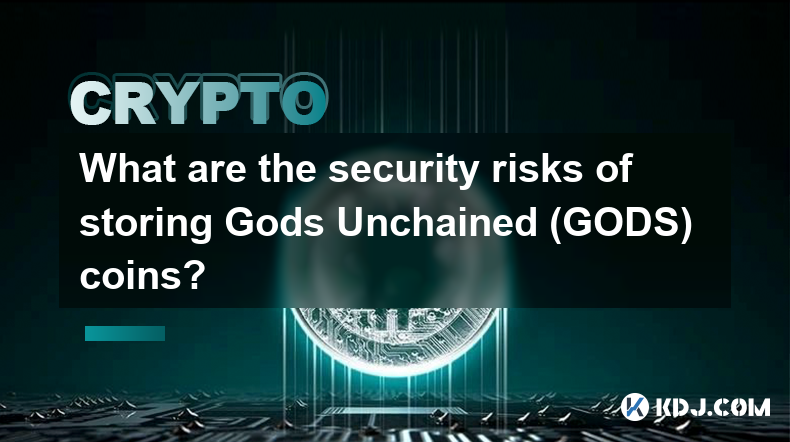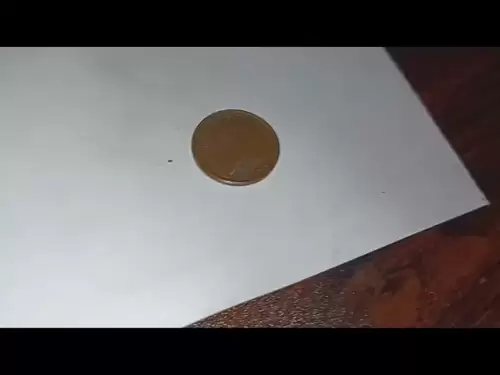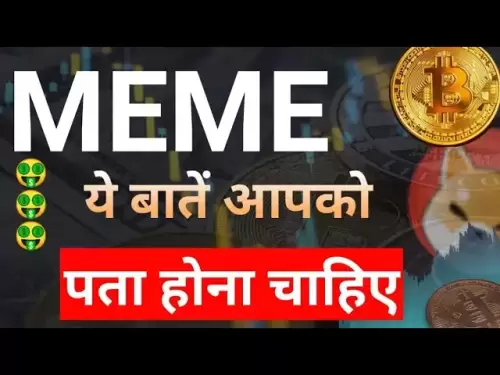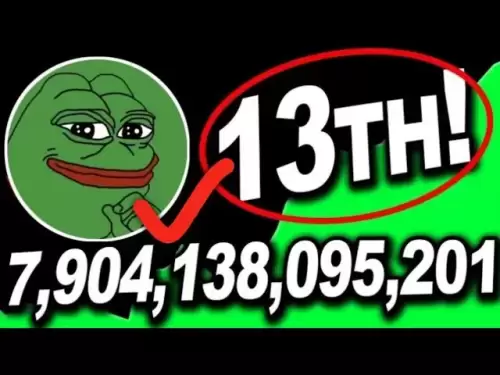-
 Bitcoin
Bitcoin $106,754.6083
1.33% -
 Ethereum
Ethereum $2,625.8249
3.80% -
 Tether USDt
Tether USDt $1.0001
-0.03% -
 XRP
XRP $2.1891
1.67% -
 BNB
BNB $654.5220
0.66% -
 Solana
Solana $156.9428
7.28% -
 USDC
USDC $0.9998
0.00% -
 Dogecoin
Dogecoin $0.1780
1.14% -
 TRON
TRON $0.2706
-0.16% -
 Cardano
Cardano $0.6470
2.77% -
 Hyperliquid
Hyperliquid $44.6467
10.24% -
 Sui
Sui $3.1128
3.86% -
 Bitcoin Cash
Bitcoin Cash $455.7646
3.00% -
 Chainlink
Chainlink $13.6858
4.08% -
 UNUS SED LEO
UNUS SED LEO $9.2682
0.21% -
 Avalanche
Avalanche $19.7433
3.79% -
 Stellar
Stellar $0.2616
1.64% -
 Toncoin
Toncoin $3.0222
2.19% -
 Shiba Inu
Shiba Inu $0.0...01220
1.49% -
 Hedera
Hedera $0.1580
2.75% -
 Litecoin
Litecoin $87.4964
2.29% -
 Polkadot
Polkadot $3.8958
3.05% -
 Ethena USDe
Ethena USDe $1.0000
-0.04% -
 Monero
Monero $317.2263
0.26% -
 Bitget Token
Bitget Token $4.5985
1.68% -
 Dai
Dai $0.9999
0.00% -
 Pepe
Pepe $0.0...01140
2.44% -
 Uniswap
Uniswap $7.6065
5.29% -
 Pi
Pi $0.6042
-2.00% -
 Aave
Aave $289.6343
6.02%
What are the security risks of storing Gods Unchained (GODS) coins?
GODS coins' vulnerability to hacking, market volatility, and rug pulls highlights the importance of secure storage, risk management, and thorough research before investing in any cryptocurrency.
Dec 23, 2024 at 04:19 pm

Key Points
- Vulnerability to hacking and phishing attacks: Gods Unchained (GODS) coins, like other cryptocurrencies, are stored in digital wallets, which can be vulnerable to hacking and phishing attacks. Hackers can exploit security vulnerabilities in wallets or trick users into revealing their private keys, allowing them to steal GODS coins.
- Exposure to market volatility: The value of GODS coins fluctuates based on supply and demand in the cryptocurrency market. Market volatility can lead to significant price swings, potentially resulting in financial losses for investors who store GODS coins.
- Risk of rug pulls: Rug pulls occur when developers abandon a cryptocurrency project, stealing investor funds. GODS coins are not immune to this risk, and investors should thoroughly research any project before investing.
- Custodial vs. non-custodial storage: GODS coins can be stored in both custodial and non-custodial wallets. Custodial wallets are managed by third parties, while non-custodial wallets give users complete control over their private keys. Non-custodial storage is generally considered more secure but requires a higher level of technical knowledge.
Steps to Mitigate Security Risks
1. Choose a reputable cryptocurrency wallet:
Select a wallet that employs robust security measures, such as two-factor authentication, strong encryption algorithms, and regular security audits. Consider using a hardware wallet for enhanced security, as they store private keys offline, reducing the risk of online attacks.
2. Secure your private keys:
Your private keys are essential for accessing your GODS coins. Keep them confidential and secure by storing them offline, such as on a physical piece of paper or a hardware wallet. Never share your private keys with anyone.
3. Be cautious of phishing attacks:
Phishing emails or websites may attempt to trick you into revealing your private keys or other sensitive information. Always verify the authenticity of emails and URLs before interacting with them.
4. Monitor market conditions:
Stay informed about the latest market trends and news that could impact the value of GODS coins. This will help you make informed decisions regarding the storage and trading of your coins.
5. Diversify your investments:
Avoid concentrating all your investments in a single cryptocurrency, including GODS coins. Diversify your portfolio across different cryptocurrencies and asset classes to reduce the risk of significant losses.
6. Research thoroughly:
Before investing in any cryptocurrency project, conduct thorough research to understand the team, technology, and long-term prospects of the project. This will help you minimize the risk of encountering rug pulls or other fraudulent schemes.
FAQs
Q: What are the best practices for storing GODS coins securely?
A: Utilize reputable wallets, safeguard private keys, avoid phishing scams, monitor market conditions, diversify investments, and conduct thorough research.
Q: How can I protect myself from phishing attacks when storing GODS coins?
A: Be wary of suspicious emails or websites, verify the authenticity of senders and URLs, and never disclose private keys or other sensitive information.
Q: What are the risks associated with rug pulls in the cryptocurrency market?
A: Rug pulls involve developers abandoning a project and stealing investor funds. Researching projects thoroughly before investing can help mitigate this risk.
Q: How should I store GODS coins if I'm not technically proficient?
A: Consider using custodial wallets, managed by third parties, which provide greater ease of use but may entail reduced control over your private keys.
Q: What factors should I consider when choosing a cryptocurrency wallet for storing GODS coins?
A: Evaluate security features, such as two-factor authentication, encryption algorithms, and security audits. Consider hardware wallets for enhanced security or custodial wallets for convenience.
Disclaimer:info@kdj.com
The information provided is not trading advice. kdj.com does not assume any responsibility for any investments made based on the information provided in this article. Cryptocurrencies are highly volatile and it is highly recommended that you invest with caution after thorough research!
If you believe that the content used on this website infringes your copyright, please contact us immediately (info@kdj.com) and we will delete it promptly.
- 2025-W Uncirculated American Gold Eagle and Dr. Vera Rubin Quarter Mark New Products
- 2025-06-13 06:25:13
- Ruvi AI (RVU) Leverages Blockchain and Artificial Intelligence to Disrupt Marketing, Entertainment, and Finance
- 2025-06-13 07:05:12
- H100 Group AB Raises 101 Million SEK (Approximately $10.6 Million) to Bolster Bitcoin Reserves
- 2025-06-13 06:25:13
- Galaxy Digital CEO Mike Novogratz Says Bitcoin Will Replace Gold and Go to $1,000,000
- 2025-06-13 06:45:13
- Trust Wallet Token (TWT) Price Drops 5.7% as RWA Integration Plans Ignite Excitement
- 2025-06-13 06:45:13
- Ethereum (ETH) Is in the Second Phase of a Three-Stage Market Cycle
- 2025-06-13 07:25:13
Related knowledge

How to customize USDT TRC20 mining fees? Flexible adjustment tutorial
Jun 13,2025 at 01:42am
Understanding USDT TRC20 Mining FeesMining fees on the TRON (TRC20) network are essential for processing transactions. Unlike Bitcoin or Ethereum, where miners directly validate transactions, TRON uses a delegated proof-of-stake (DPoS) mechanism. However, users still need to pay bandwidth and energy fees, which are collectively referred to as 'mining fe...

USDT TRC20 transaction is stuck? Solution summary
Jun 14,2025 at 11:15pm
Understanding USDT TRC20 TransactionsWhen users mention that a USDT TRC20 transaction is stuck, they typically refer to a situation where the transfer of Tether (USDT) on the TRON blockchain has not been confirmed for an extended period. This issue may arise due to various reasons such as network congestion, insufficient transaction fees, or wallet-rela...

How to cancel USDT TRC20 unconfirmed transactions? Operation guide
Jun 13,2025 at 11:01pm
Understanding USDT TRC20 Unconfirmed TransactionsWhen dealing with USDT TRC20 transactions, it’s crucial to understand what an unconfirmed transaction means. An unconfirmed transaction is one that has been broadcasted to the blockchain network but hasn’t yet been included in a block. This typically occurs due to low transaction fees or network congestio...

What to do if USDT TRC20 transfers are congested? Speed up trading skills
Jun 13,2025 at 09:56am
Understanding USDT TRC20 Transfer CongestionWhen transferring USDT TRC20, users may occasionally experience delays or congestion. This typically occurs due to network overload on the TRON blockchain, which hosts the TRC20 version of Tether. Unlike the ERC20 variant (which runs on Ethereum), TRC20 transactions are generally faster and cheaper, but during...

The relationship between USDT TRC20 and TRON chain: technical background analysis
Jun 12,2025 at 01:28pm
What is USDT TRC20?USDT TRC20 refers to the Tether (USDT) token issued on the TRON blockchain using the TRC-20 standard. Unlike the more commonly known ERC-20 version of USDT (which runs on Ethereum), the TRC-20 variant leverages the TRON network's infrastructure for faster and cheaper transactions. The emergence of this version came as part of Tether’s...

How to monitor large USDT TRC20 transfers? Tracking tool recommendation
Jun 12,2025 at 06:49pm
Understanding USDT TRC20 TransfersTether (USDT) is one of the most widely used stablecoins in the cryptocurrency ecosystem. It exists on multiple blockchains, including TRON (TRC20). The TRC20 version of USDT operates on the TRON network and offers faster transaction speeds and lower fees compared to its ERC-20 counterpart on Ethereum. When discussing l...

How to customize USDT TRC20 mining fees? Flexible adjustment tutorial
Jun 13,2025 at 01:42am
Understanding USDT TRC20 Mining FeesMining fees on the TRON (TRC20) network are essential for processing transactions. Unlike Bitcoin or Ethereum, where miners directly validate transactions, TRON uses a delegated proof-of-stake (DPoS) mechanism. However, users still need to pay bandwidth and energy fees, which are collectively referred to as 'mining fe...

USDT TRC20 transaction is stuck? Solution summary
Jun 14,2025 at 11:15pm
Understanding USDT TRC20 TransactionsWhen users mention that a USDT TRC20 transaction is stuck, they typically refer to a situation where the transfer of Tether (USDT) on the TRON blockchain has not been confirmed for an extended period. This issue may arise due to various reasons such as network congestion, insufficient transaction fees, or wallet-rela...

How to cancel USDT TRC20 unconfirmed transactions? Operation guide
Jun 13,2025 at 11:01pm
Understanding USDT TRC20 Unconfirmed TransactionsWhen dealing with USDT TRC20 transactions, it’s crucial to understand what an unconfirmed transaction means. An unconfirmed transaction is one that has been broadcasted to the blockchain network but hasn’t yet been included in a block. This typically occurs due to low transaction fees or network congestio...

What to do if USDT TRC20 transfers are congested? Speed up trading skills
Jun 13,2025 at 09:56am
Understanding USDT TRC20 Transfer CongestionWhen transferring USDT TRC20, users may occasionally experience delays or congestion. This typically occurs due to network overload on the TRON blockchain, which hosts the TRC20 version of Tether. Unlike the ERC20 variant (which runs on Ethereum), TRC20 transactions are generally faster and cheaper, but during...

The relationship between USDT TRC20 and TRON chain: technical background analysis
Jun 12,2025 at 01:28pm
What is USDT TRC20?USDT TRC20 refers to the Tether (USDT) token issued on the TRON blockchain using the TRC-20 standard. Unlike the more commonly known ERC-20 version of USDT (which runs on Ethereum), the TRC-20 variant leverages the TRON network's infrastructure for faster and cheaper transactions. The emergence of this version came as part of Tether’s...

How to monitor large USDT TRC20 transfers? Tracking tool recommendation
Jun 12,2025 at 06:49pm
Understanding USDT TRC20 TransfersTether (USDT) is one of the most widely used stablecoins in the cryptocurrency ecosystem. It exists on multiple blockchains, including TRON (TRC20). The TRC20 version of USDT operates on the TRON network and offers faster transaction speeds and lower fees compared to its ERC-20 counterpart on Ethereum. When discussing l...
See all articles

























































































